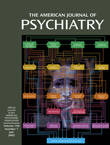A psychotherapist is like an editor who hears and interacts critically in order to make the story more clear, authentic, meaningful, and passionate, always respecting the teller’s will. The ending remains under the writer’s control, and new insights and attitudes are likely to emerge about those parts of the story which cannot be changed. “Of the healing arts, therapy is surely the most literary, since it involves the telling and revision of a story,” says Mark Doty in his essay.
We already have an abundance of case histories by therapists and a few from the patient’s vantage point. Tales From the Couch offers 17 of the latter, all from notable writers, well edited by Jason Shinder, poet, critic, and teacher. For therapists, these stories will open our eyes to the collage of person and professional that our patients see in us. General readers will see why intelligent, articulate people go into therapy (sometimes in desperation, never as a lark) and what happens there. The forms of help vary, but always the importance of relationship, listening, and respect comes through. Therapists appear in several guises, from prim to gross, reserved to seductive, theory-bound to imaginative.
“He is inside me,” concludes Adam Gopnik about his late analyst, in a feisty, funny, and touching essay. Rebecca Walker (among others) speaks of several therapists, making useful distinctions about what works. Douglas Bauer relates an encounter with his own housepainters at his therapist’s office. The real life of the psychiatrist (Leslie Farber) intrudes too much in the experience of Emily Fox Gordon, but she remains grateful that he rescued her from an institution. Caroline Maso has a kind of primary process approach, unlike the others. “If it doesn’t feel right by the fourth or fifth session,” says Philip Lopate, an admirer of Freud’s writing, “it will never feel right, no matter whose fault it is.” Ntozake Shange writes, “Psychoanalysis has made me a finer writer, a fuller person and a funnier one.” Meg Wolitzer also has praise for analysis.
George Plimpton is not the only one to analyze and challenge the therapist. Diane Ackerman refers to therapists as “serial lovers.…The therapist must prove his devotion by not lying down with his lady…the patient is more naked than naked.…His quest is to restore what has been lost or stolen from the castle of her self-regard.” For Ethelbert Miller,
therapy is an opportunity, I suspect, to talk with oneself while talking to another person. A form of meditation, listening, learning how to breathe, and letting go. It is the realization that emotional stability is a tightrope and that the ability to maintain one’s balance is essential for celebrating the joy of living.
Susan Wood tells how the process of understanding is reflected in a poem, giving rare insight into the creative process. Pam Houston illustrates treatment for posttraumatic stress disorder. Lucy Grealy points to the fact that within Freud’s scientific enterprise the heart of both diagnosis and treatment is the telling of a story. In fairness, stories cannot be summed up, and I can only mention the two fine writers who round out this unique anthology, Susan Cheever and David Mura.
This book is ideal for training of new and maintenance of older therapists. Here some of our most articulate friends and critics control the story, edit our dialogue, and make judgments—with intelligence, feeling, irony, and wonderful effect. It is a pleasure to learn from them, to see ourselves, to feel complimented, mostly, but also chastened.

